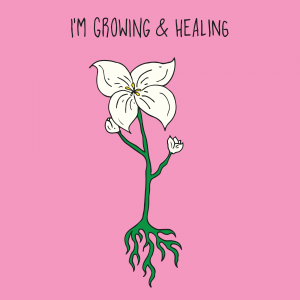Offer Support
Support Guidance for Friends, Family, and Others

If someone discloses an experience of violence, listen and validate the person’s experience.
Do not assume you know what they need. They may be talking to you for many reasons, such as wanting to feel safe, prevent another occurrence, looking for justice, seeking support, or reporting the incident.
Reassure them that they are not alone and that there are services to support them through the Centre and other resources.
You can also reach out to the Centre yourself for more guidance about how to better support them confidentially.
Try the C.A.L.M. Approach
C.A.L.M. is an acronym to guide you in responding to a disclosure supportively. If someone you know chooses to disclose to you, try following the steps below:
C – Create a Safe Environment
- Assess for safety or immediate risk.
- Ensure privacy.
- Demonstrate that you believe the person with your words and actions.
- Explain any limits to your confidentiality.
A – Ask
- Ask “How can I best support you?” Don’t assume.
- Ask non-detailed, open-ended questions that communicate belief and offer support.
- Avoid intrusive or detailed questions.
L – Listen and Validate
- Thank the person for disclosing.
- Validate their feelings.
- Follow their lead.
- Ensure that they have autonomy.
- Reassure them that they are not alone.
- Avoid touching the person without their consent.
M – Make Connections
- Tell the person about the University’s Policy on Sexual Violence and Sexual Harassment and the Centre.
- Explain that support services are available.
- If they are comfortable, help facilitate a connection to the Centre.
Advice for Specific Circumstances
If someone discloses that they were recently sexually assaulted:
- Encourage them to get medical attention at a local Sexual Assault and Domestic Violence Care Centre. Care Centers offer medical assistance along with emotional support, crisis intervention, safety planning, referrals, and short-term counselling.
- For forensic evidence collection, they should visit a Care Centre within 72 hours if possible, although some evidence may be collected up to 12 days after an assault. Ideally, they should refrain from changing their clothes or showering before the exam to preserve evidence. An exam does not trigger an automatic report. The person can choose what type of evidence is collected and whether to report the incident to police.

If someone discloses that they have experienced stalking or harassment:
- Suggest that they write down the details of the incident(s), to the degree they are comfortable doing so.
- Details could include dates, times, and locations, along with specifics about what happened, witnesses, copies of emails and texts, phone logs and other details that could be used as evidence should they wish to report now or later.
If someone wishes to report the incident to the police or University:
- To report to the police: The Centre and/or Campus Safety can help facilitate a report to the appropriate police agency, or the person can go directly to police if they prefer.
- To report to the University of Toronto: Connect the individual to the Centre, where they can learn more about the reporting process and make a report to the University.
- Assist them in making the call and/or offer to accompany the person to where they need to go.
Remember: Take Care of Yourself Too
- It’s natural to have an emotional reaction to a disclosure of an experience of sexual violence. A disclosure may even bring up your own past trauma.
- It can be hard to know what to do to help someone who shares a painful experience. This can leave a person who receives a disclosure feeling overwhelmed. Notice your feelings and take any necessary steps to care for yourself, including accessing support.
- At the Centre, we’re here to provide support and information to individuals who have received disclosures. You can contact us for support at any time.
